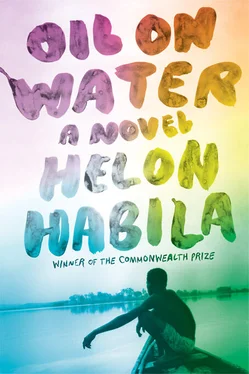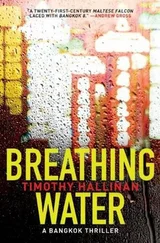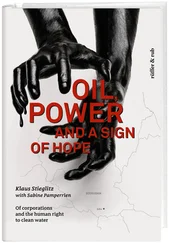Boma was alone, and I could tell she had been crying, when I gothome in the evening. I had gone straight to the office to write my piece for the next day’s paper as soon as I arrived in Port Harcourt in the afternoon; my legs were still wobbly from standing for almost the entire length of the journey. The ferry had made so many stops on the way, I began to think we were never going to reach Port Harcourt that day. We had picked up women carrying chickens in baskets and crabs in buckets and squealing goats led by ropes around their necks on their way to the market. The air in the ferry’s central lounge soon grew foul, forcing me to abandon my seat next to a fat, laughing, gesticulating woman and her two children to stand outside by the rail, my eyes focused on the receding coastline, my mind contemplating what awaited me in Port Harcourt.
She was seated on my wicker armchair, facing the TV, but in such a way that her profile showed the undamaged side of her face, and even when she looked up at my entrance she still managed to keep the burned, badly healed side of her face hidden. She did it unconsciously, but the scar always dictated how she stood, how she sat. It made me sad when she did that, especially with me. How could I tell her that she really needn’t do that with me? Only with John, her husband, was she ever able to sit without regard to where the light fell, but two months ago John had left her, and now she had taken to stopping by more often, even when I wasn’t around. She’d wash the dishes and cook and sweep the room, but sometimes, though I had never caught her at it, she just sat and cried.
Today her bags and crockery and TV and other household things were heaped in a corner of my tiny living room.
— The landlord kicked me out.
She lived in a tenement house similar to mine, in a room and parlor, owned by the same hard-faced, unsmiling landlord. The landlord had started hanging around outside their door soon after John, who worked for a courier company as a mail sorter, lost his job six months ago. Since Boma was only a trainee typist and didn’t get paid, I had shared my monthly pay with them, knowing that they had only me to turn to, as I had only them. I went to the bathroom to urinate and to wash my face, and when I came back she stood up, went to the cooker in the corner and dished out some rice for me.
— You must be hungry.
— Thank you.
When the silence grew too heavy, even with the TV on, I told her of the kidnapping, and the devastated island. When I got to the dead bodies, she burst into tears.
— The poor people, they could be anyone, just anyone.
I knew she was thinking of John. He had become very political, hanging out in backstreet barrooms with other unemployed youths to play cards and drink all day, always complaining about the government. He had been full of anger before he left, the kind of anger that often pushed one to blaspheme, or to rob a bank, or to join the militants. I had seen that kind of anger before in many of my friends, people I went to school with; some of them were now in the forests with the fighters, some of them had made millions from ransom money, but a lot of them were dead.
— Boma, John has more sense than that.
John had married her when others had cringed and recoiled at the sight of her red, constantly watery eyes and curdled cheeks. We had grown up together, the three of us; fought the bullies together in primary and secondary school, parting only when I left home. At first I thought John had stuck to Boma out of pity, and I resented him for it; I really truly believed only when I saw the exchange of rings, and the joy on my sister’s damaged face.
She slept on the bed and I spread a blanket on my old and tattered carpet in the living room after moving some of her things into the bedroom. Boma went to sleep immediately, but I couldn’t sleep, and when I got sore from endlessly tossing and turning, I switched on the TV and watched a science fiction movie about a submerged world. The polar ice cap has melted and land has sunk underwater and is now talked about only in legends. The star, Kevin Costner, is a hated mutant, with gills and webbed feet, and he is clever with contraptions and devices. In one scene he takes the heroine underwater in a bell jar and shows her an inundated city. This is it, he tells her; there is no dry land, so quit hoping. There is only water. There are long and beautiful shots of endless ocean, with only Kevin Costner’s frail boat on it, dwarfed by the liquid blue vastness. I fell asleep with the movie still playing, thinking there was something sad about a people who were born and lived and died on water, on rusty ships and boats and fantastic balloons, their days and nights filled with the hope of someday finding dry earth, their wars and industries and relationships and culture all driven by the myth of dry land.
The Reporter was a moderate, middle-brow daily occupying the twobottom floors in a five-floor building in central Port Harcourt. Across the street from our offices was a private elementary school that came awake at eight a.m. and remained awake till four p.m.; next to it was a nightclub that came awake at eight p.m. and remained awake till four a.m.; and farther down the street in a row were a mechanic’s garage, a restaurant, and a car wash. The Reporter had been in existence for more than seven years now, and in that time the staff strength had grown from twenty to two hundred, and the print run from one thousand to over ten thousand. It was owned by Godwin Amaechi, “the Chairman” to his employees, a seventy-year-old veteran journalist who still came to the office earlier than everyone else, and stayed till ten p.m. after the next day’s issue had been put to bed. He controlled every aspect of the paper, from its accounts to its editorials, with a dictator’s hand, albeit a benevolent one. I had seen colleagues who were currently out of favor duck into a doorway at his approach; I had seen subeditors make a sign of the cross before going into his office for a meeting. At midday, every day, except Sundays when he stayed home, he’d carry out what we privately called the “ceremonial inspection of the guards,” starting from the long, rectangular newsroom, where he’d chastise a poor reporter or praise a deserving one, and ending up at the dining room on the ground floor an hour later. For the next hour he’d sit at the head of the table, surrounded by editors and other senior staff, each doing his best to outshine the other in suggesting ingenious story ideas. The day’s favorite reporter usually sat to the Chairman’s right at those grim lunches — an honor that was as painful as torture, said those who had experienced it.
Today I was experiencing it. For over an hour I answered the Chairman’s questions, giving as much detail as I could, hardly blinking, hardly breathing, mostly swallowing without chewing, gulping down mouthfuls of water to stop myself from choking on my pounded yam. Now I understood why some colleagues called these lunches “The Last Supper.”
— You’ve done a great job. Good pictures.
— Thank you, sir.
— Have some banana.
— Thanks.
— And tell me about Zaq. I understand you were there with him?
He waved the morning paper, which carried my article.
— Yes. He was very helpful. He’s still out there, on Irikefe Island. He said he needed the break.
— I knew him, once. We used to work for the same paper. But that was a long time ago.
The kidnapping, which had receded to the inside pages the previous couple of days, had vaulted back to the front page once again, mainly because of the violent gun battle on the island. Some of the men, like Nkem at the Globe, speculated in their reports that Mrs. Floode might be dead, using garish pictures of dead bodies and burning huts to support this. My story, which my paper brought out in a special edition, had captured more attention than the other reports, perhaps because I had referenced and quoted Zaq a lot in my piece, and also because, due to my training, I knew how to use pictures more effectively than the other reporters. My close-ups conveyed the shrill urgency and tragedy, which my text tactfully refrained from mentioning, with twice the impact. This morning two Reuters reporters, after reading my story, had come to the newsroom to chat with me.
Читать дальше












